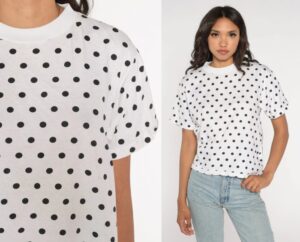Is seafood vegan? The answer to this intriguing question unveils a world of plant-based alternatives that mimic the taste and texture of traditional seafood, offering a sustainable and ethical alternative to marine consumption. Delve into the depths of this culinary exploration as we uncover the nuances of vegan seafood and its implications for our oceans and our plates.
As the global movement towards veganism gains momentum, the demand for plant-based alternatives to animal products has extended to the realm of seafood. With advancements in food technology, culinary innovators have crafted a diverse array of vegan seafood options, ranging from succulent plant-based fish to savory shellfish substitutes, challenging the conventional notion of seafood consumption.
Definition of Veganism
Veganism is a lifestyle that excludes all animal products, including meat, dairy, eggs, honey, and any other ingredients derived from animals. It extends beyond diet to encompass all aspects of life, such as clothing, cosmetics, and entertainment, ensuring that no animals are harmed or exploited.
Motivations for Veganism, Is seafood vegan
People adopt veganism for various reasons, including ethical concerns, environmental sustainability, and health benefits. Ethically, vegans believe that animals deserve to live free from suffering and exploitation, rejecting the commodification of sentient beings. Environmentally, veganism promotes plant-based diets that have a lower carbon footprint and conserve water and land resources compared to animal agriculture.
Whether you’re looking to reduce your meat consumption or simply want to explore the delicious world of seafood, pescatarian dinner ideas offer a wide range of flavorful and satisfying options. From grilled salmon with roasted vegetables to hearty fish tacos, there’s something to suit every palate.
Health-wise, vegan diets are rich in fruits, vegetables, whole grains, and legumes, providing numerous health benefits, such as reduced risk of chronic diseases like heart disease and type 2 diabetes.
Classification of Seafood
Seafood, an umbrella term for edible marine organisms, encompasses a vast array of species from diverse biological groups. These organisms are classified based on their physical and biological characteristics, with each group exhibiting unique nutritional profiles and health benefits.
The classification of seafood includes:
Fish
- Characteristics:Fish are vertebrates with gills and a streamlined body, enabling efficient swimming. They can be categorized into bony fish (e.g., salmon, tuna) and cartilaginous fish (e.g., sharks, rays).
- Nutritional Value:Fish are rich in omega-3 fatty acids, which support brain health, heart health, and reduce inflammation. They are also good sources of protein, vitamins, and minerals.
Shellfish
- Characteristics:Shellfish are invertebrates with hard outer shells. They include bivalves (e.g., oysters, clams), gastropods (e.g., snails), and crustaceans (e.g., shrimp, lobster).
- Nutritional Value:Shellfish are excellent sources of protein, zinc, iron, and vitamin B12. They are also low in calories and fat.
Echinoderms
- Characteristics:Echinoderms are invertebrates with a unique radial symmetry. They include sea urchins, sea cucumbers, and starfish.
- Nutritional Value:Echinoderms are a good source of protein, omega-3 fatty acids, and minerals such as magnesium and calcium.
Cephalopods
- Characteristics:Cephalopods are invertebrates with soft bodies and large heads. They include squid, octopus, and cuttlefish.
- Nutritional Value:Cephalopods are a good source of protein, omega-3 fatty acids, and vitamins B12 and E.
Vegan vs. Non-Vegan Seafood: Is Seafood Vegan
Vegan seafood refers to plant-based alternatives to traditional seafood products derived from animals. Unlike non-vegan seafood, vegan seafood is made from ingredients such as soy, wheat gluten, and seaweed, mimicking the taste and texture of fish, shrimp, and other marine animals.
The growing demand for sustainable and ethical food options has driven the development of these innovative products.
Ingredients and Sources
Vegan seafood alternatives are primarily made from plant-based proteins, including soy, wheat gluten, and pea protein. These ingredients provide a meaty texture and absorb flavors well. Additionally, seaweed and algae are often used to enhance the taste and nutritional value of vegan seafood.
These plant-based sources are rich in nutrients like iodine, omega-3 fatty acids, and fiber.
Nutritional Content and Taste Profiles
While vegan seafood alternatives may not provide the exact same nutritional profile as traditional seafood, they offer a comparable amount of protein and essential nutrients. They are typically lower in saturated fat and cholesterol, making them a healthier option. In terms of taste, vegan seafood has evolved significantly in recent years, with many products offering a remarkably similar flavor and texture to their non-vegan counterparts.
However, some vegan seafood alternatives may have a slightly different taste profile due to the use of plant-based ingredients.
Ethical and Environmental Considerations
The consumption of seafood raises ethical concerns regarding animal welfare and sustainability. The fishing industry often involves practices that cause suffering to marine animals, including bycatch, where non-target species are accidentally caught and discarded, and the use of harmful fishing gear that can injure or kill marine life.
Seafood production also has significant environmental impacts. Overfishing, the practice of catching fish at a rate faster than they can reproduce, has led to the depletion of fish populations worldwide. Additionally, habitat destruction, such as the destruction of coral reefs and seagrass beds, can disrupt marine ecosystems and affect the survival of various species.
Vegan Seafood Alternatives
Vegan seafood alternatives offer ethical and environmental benefits. They are made from plant-based ingredients, eliminating the need to harm marine animals. Furthermore, the production of vegan seafood alternatives has a lower environmental impact compared to traditional seafood, as it does not contribute to overfishing or habitat destruction.
Pescatarians, rejoice! For those looking for delectable dinner options that adhere to a pescatarian lifestyle, look no further. Our comprehensive guide to pescatarian dinner ideas offers an array of mouthwatering dishes that will tantalize your taste buds. From succulent grilled salmon to flavorful seafood pasta, there’s something to satisfy every palate.
So gather your loved ones, set the table, and prepare for an unforgettable pescatarian dining experience.
Examples of Vegan Seafood Alternatives
In the quest for sustainable and compassionate dining, vegan seafood alternatives have emerged as a delicious and ethical solution. These plant-based substitutes offer a wide range of options, mimicking the flavors and textures of traditional seafood while aligning with vegan principles.
From succulent plant-based fish fillets to flavorful crustacean alternatives, the market for vegan seafood is rapidly expanding. These alternatives are crafted from various plant-based ingredients, including soy, wheat, legumes, and seaweed, providing a nutritious and environmentally friendly alternative to conventional seafood.
Fish Alternatives
- Tofu Fish:Made from pressed tofu, tofu fish mimics the flaky texture of white fish and absorbs marinades well. It’s a versatile option for grilling, baking, or stir-frying.
- Jackfruit:With its meaty texture and slightly sweet flavor, young jackfruit is an excellent substitute for tuna or crab meat. It can be seasoned and shredded to create vegan “tuna” salads or “crab” cakes.
- Seaweed-Based Fillets:Made from seaweed extracts, these fillets provide a seafood-like texture and are a good source of iodine and other essential nutrients.
Shellfish Alternatives
- Oyster Mushrooms:The plump shape and meaty texture of oyster mushrooms make them a great substitute for oysters. They can be sautéed, grilled, or added to soups and stews.
- Artichoke Hearts:Marinated artichoke hearts offer a slightly briny flavor and a tender texture similar to clams. They can be used in salads, pasta dishes, or as a topping for pizza.
- Hearts of Palm:These canned vegetable hearts resemble the texture of scallops and can be sliced and grilled or sautéed. They have a mild flavor that absorbs marinades well.
Crustacean Alternatives
- Banana Blossom:The unopened flower of the banana tree has a fibrous texture that resembles crab or lobster meat. It can be boiled, steamed, or stir-fried and seasoned to taste.
- King Oyster Mushrooms:With their large size and firm texture, king oyster mushrooms can be grilled or roasted to mimic the flavor and texture of lobster or crab.
- Shiitake Mushrooms:These flavorful mushrooms have a slightly chewy texture that works well as a substitute for shrimp or scallops. They can be sautéed, grilled, or added to stir-fries.
The availability of vegan seafood alternatives varies across markets, but online retailers and specialty grocery stores often stock a wide selection. As demand for plant-based options grows, the availability of these alternatives is expected to increase, making it easier for consumers to enjoy sustainable and compassionate seafood choices.
Epilogue
The exploration of vegan seafood alternatives has not only expanded culinary horizons but also sparked important conversations about the ethical and environmental implications of seafood consumption. By embracing plant-based seafood, we can reduce our reliance on dwindling marine resources, safeguard animal welfare, and contribute to a more sustainable future.
As the availability and accessibility of vegan seafood continue to grow, it is becoming increasingly easier for individuals to make ocean-friendly choices without sacrificing the delectable flavors of the sea.
Popular Questions
What exactly is vegan seafood?
Vegan seafood encompasses a range of plant-based alternatives to traditional seafood, crafted using ingredients such as soy, wheat gluten, seaweed, and legumes. These alternatives mimic the taste, texture, and nutritional value of their marine counterparts, offering a sustainable and ethical option for seafood lovers.
How does vegan seafood compare to traditional seafood in terms of nutritional value?
While the nutritional content of vegan seafood may vary depending on the specific ingredients used, many alternatives provide comparable levels of protein, omega-3 fatty acids, and essential vitamins and minerals to traditional seafood. Some vegan seafood options may even be fortified with additional nutrients to enhance their nutritional profile.
Is vegan seafood widely available and accessible?
The availability and accessibility of vegan seafood have grown significantly in recent years. Many grocery stores, specialty food shops, and online retailers now offer a diverse selection of vegan seafood alternatives. The growing demand for plant-based options has also encouraged restaurants and food service providers to incorporate vegan seafood into their menus.






Leave a Comment